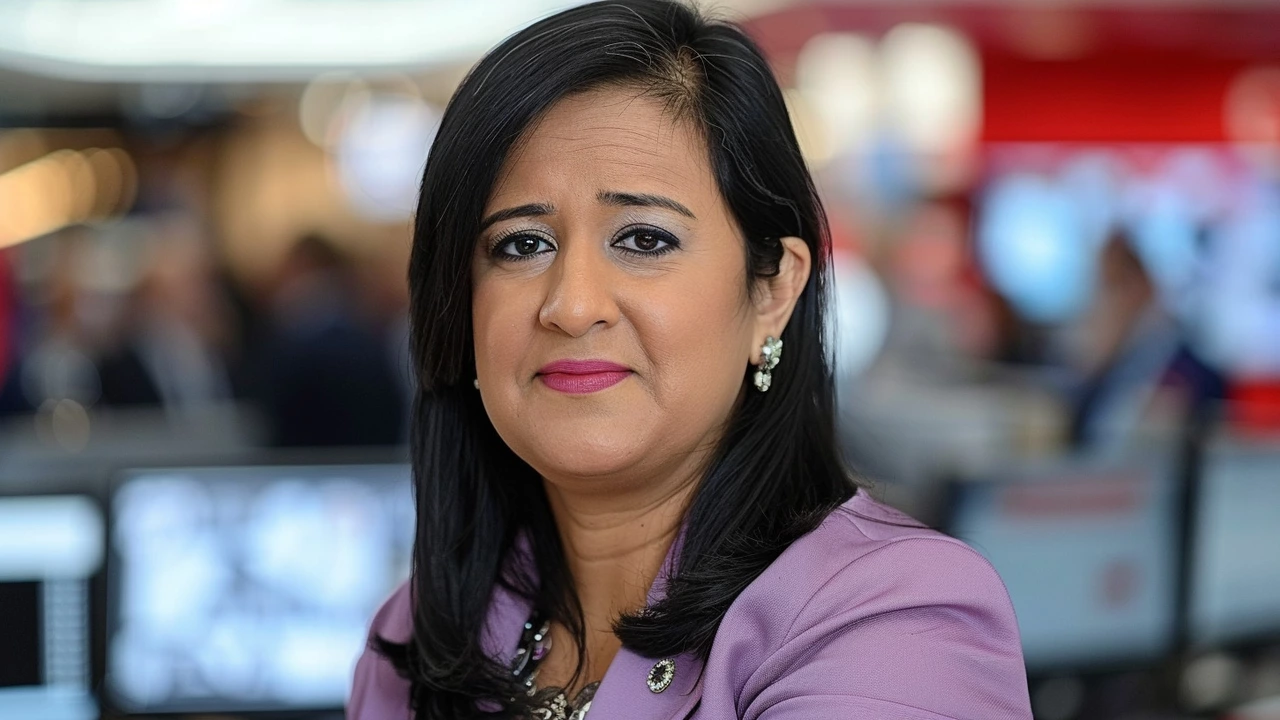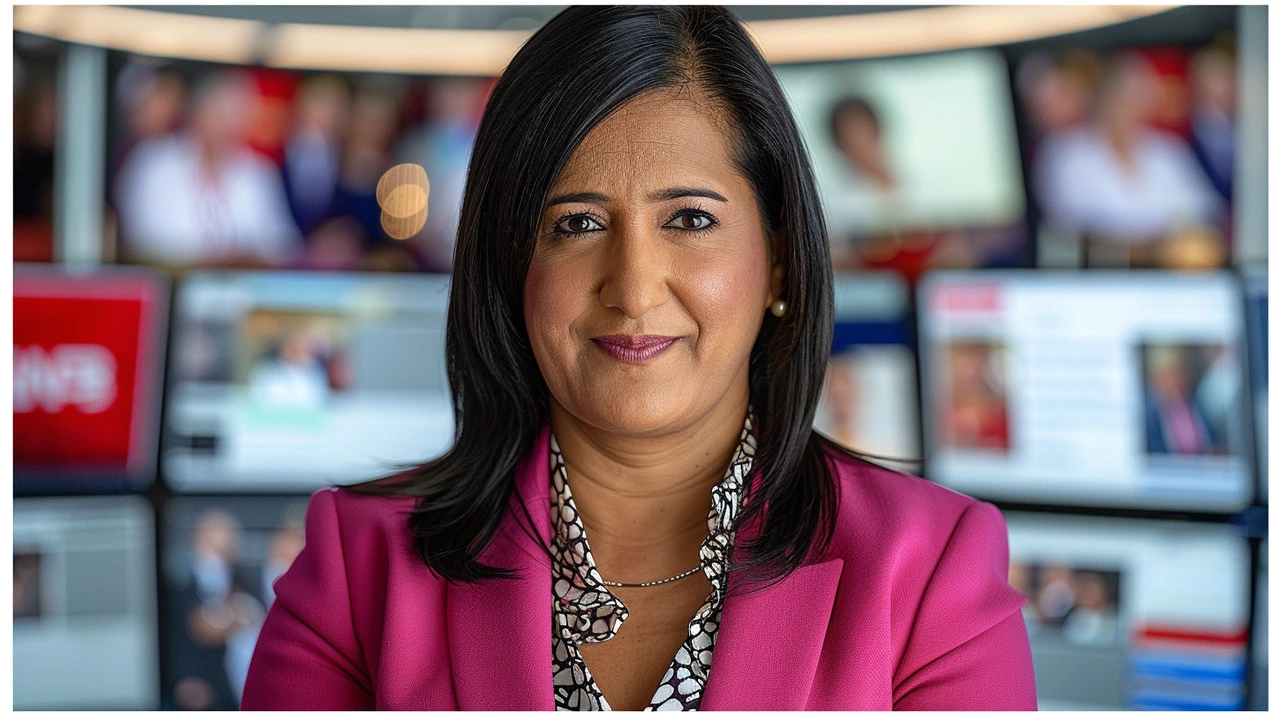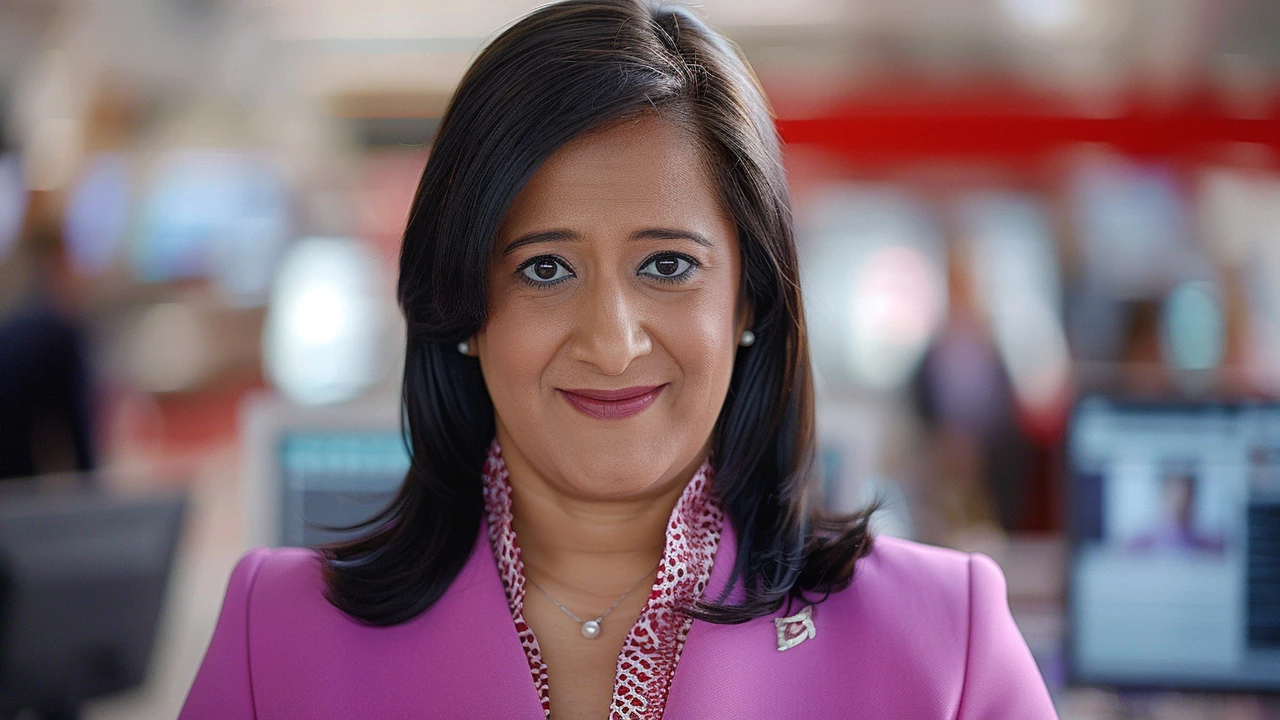Geeta Guru-Murthy's Controversial Remarks
In a live broadcast on BBC, newsreader Geeta Guru-Murthy commented on Nigel Farage’s speech at a Reform UK event in Dover, describing his language as 'customary inflammatory.' This statement quickly drew attention, not least from Farage himself, who openly questioned the impartiality of BBC. As the honorary president of Reform UK, Farage was quoting the Polish Prime Minister Donald Tusk during his speech, describing 'aggressive young males' entering Poland. It wasn't long before Guru-Murthy's comment was scrutinized for violating the BBC’s editorial standards on impartiality.
The Apology and Aftermath
Following a wave of backlash and scrutiny, Guru-Murthy issued a formal apology to Nigel Farage. She acknowledged that her comment had overstepped the boundaries set by the BBC’s guidelines on impartiality. This incident has reignited discussions about the critical role of media neutrality, especially in politically sensitive matters. In the age of social media, where public figures can immediately respond to coverage, incidents like these can escalate quickly, as they did with Farage voicing his concerns on X, formerly known as Twitter.
Lee Anderson’s Call for Action
The situation intensified when Reform MP Lee Anderson, a former Conservative MP, jumped into the fray. Anderson called for drastic measures against the broadcaster, including the scrapping of the licence fee and the dismissal of Guru-Murthy. His demands reflect a growing chorus of voices questioning the current funding model of the BBC and calling for greater accountability.

Context: Migration Coverage Review
This controversy is set against a backdrop of broader concerns about the BBC’s handling of migration issues. An independent review led by policy specialist Madeleine Sumption found that the BBC's coverage of migration was often fraught with 'risks to impartiality.' The review disclosed that journalists within the organization were 'anxious' about appearing hostile to migrants, which could compromise the objectivity of their reporting. This nuanced finding adds another dimension to the debate on media neutrality, suggesting that editorial biases can manifest in subtler ways than overt comments.
Media Neutrality and Accountability
The incident is a pertinent reminder of the delicate balance media outlets must maintain to uphold their credibility. As public trust in the media fluctuates, instances of perceived bias can have significant repercussions. This particular episode also underscores the role of live broadcasting in media, where spontaneous commentary can sometimes breach editorial standards. It highlights the importance of rigorous internal checks and constant vigilance in upholding principles of impartiality.
Broader Implications for Public Broadcasting
This incident isn't an isolated one. It's part of a wider landscape where public broadcasters worldwide are under scrutiny for their coverage and editorial decisions. The BBC, as a publicly funded entity, faces unique pressures and expectations. The calls to abolish the licence fee following this recent controversy will likely add fuel to ongoing debates about public broadcasting's future funding and governance structure.

Lessons for Journalists
For journalists, this episode serves as a sobering reminder of the power and responsibility they wield. The quest for fair and balanced reporting is continuous and requires a keen awareness of the potential impacts of one's words. It is also a call to journalists to engage in self-reflection and actively seek feedback to mitigate unconscious biases.
The Road Ahead
Looking forward, the BBC will need to address both the immediate fallout from this incident and the broader concerns about its editorial policies. Ensuring transparency in their processes and reinforcing impartiality standards will be crucial steps in rebuilding public trust. This period of introspection and potential reform could redefine BBC’s role and reputation in an evolving media landscape.
